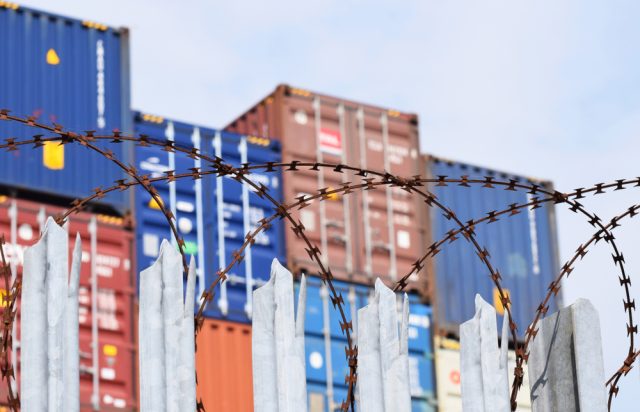
The global economic scenario in recent days is in constant flux. The situation changes from day to day, if not hour to hour. Statements – often resounding ones from overseas – chase one another and overlap in a continuous back-and-forth that seems to have little effect on the trend of the markets and the stock exchanges, which are in sharp decline. The major international markets are looking for a rebound, but even the positive signs on the indices are worth little when one considers the magnitude of the billions of dollars burned in just a few hours after US President Donald Trump’s announcement of duties. We are talking about something like 9.5 trillion dollars gone up in smoke in the markets in a little less than three days, with stock exchanges in the Asian area that have not seen such low results since the 1997 crisis, or since the Covid period as far as the European markets are concerned. But even in the United States the situation is not rosy, and several voices are rising against the tycoon’s decisions, some of them coming from very close to the White House.
THE SITUATION IN THE UNITED STATES
There is only one certainty in this smoky and ever-changing situation: what until now has appeared to be Trump’s right-hand man, Elon Musk, is not happy with the economic policies imposed by the President. The Washington Post wrote about this while citing anonymous sources, but the South African entrepreneur himself, with Canadian and US passport, also made it explicit in a post on X in which he recalled the famous “pencil speech” by the Nobel Prize-winning economist Milton Friedman. This is a real stance against Trump’s ideas and the imposition of tariffs. Analysts point out that even in the GOP conservative camp there is a clear split, with several Trump supporters who are no longer confident in his abilities and would no longer be ready to follow him blindfolded along the path he is charting for US society and economy. Even his supporters and campaign financiers, starting with Silicon Valley billionaires, are no longer certain that the tycoon is serving the interests of the star-studded economy. The prediction (the one made by Wall Street gurus) is that the duties imposed these days will drive up inflation and slow down American growth. In addition to this, Trump’s decision would lay the foundations for a real global economic conflict, which would put the United States, China and the European Union (leaving aside, but only for the moment, Moscow’s economy) on opposite sides.
THE FIGHT WITH THE DRAGON
Of course, the trade confrontation with Beijing is at a very high level, with Trump having already threatened a 50% increase in the current duties (bringing the taxation on some products to over 100% of the price) unless China withdraws its 34% duties imposed in retaliation to Washington’s choices. Of course, at the moment the tycoon’s gaze is – or should be – all on the Chinese dragon’s moves. The real adversary of the United States, at this juncture, is in fact Beijing itself, especially for the role it could play on the international market as an alternative to the US market.
WILL THE EUROPEAN UNION ALSO LOOK EAST?
For its part, the European Union is ready to activate measures that will be discussed in the coming days, even if on the front of the individual chancelleries the sensitivities on this matter also differ considerably. What is certain is that the gaze of the President of the European Commission, Ursula von der Leyen, has shifted to the East, also thanks to a telephone conversation with Chinese Premier Li Qiang. Although no details of the conversation have emerged, what has transpired from the EU executive is that the importance of stability and predictability in the global economy has been emphasised. A long-standing rationale as opposed to the US government’s thrusts and shock provisions that have instead disrupted these dynamics. It would also emerge from the conversation that it would be up to the EU and China to play the supporting role of a strong and free trade system. A real bogeyman for Donald Trump, that could perhaps weigh even more heavily than the imposition of opposing tariffs and the lack of domestic support from his loyalists.



 Subscribe
Subscribe